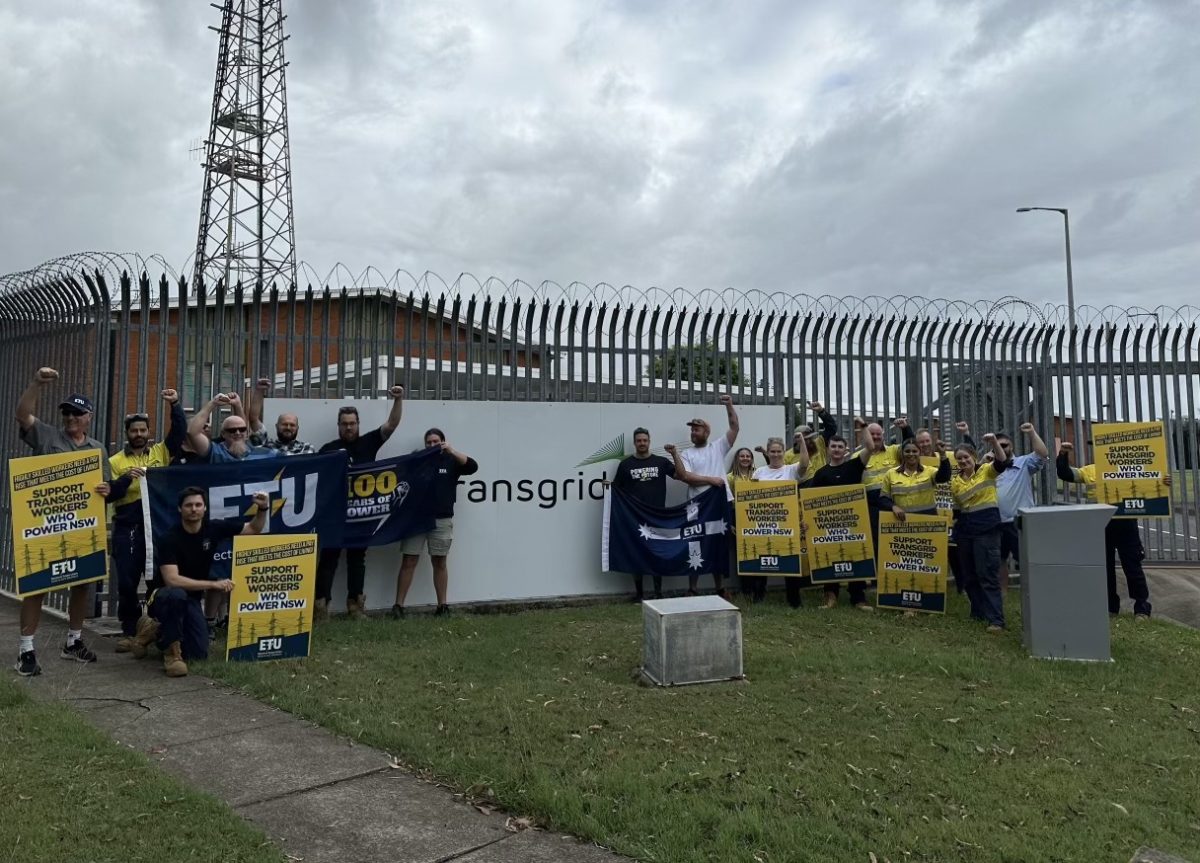
This is the second time in about a month that Transgrid ETU members have downed tools over pay. Photo: ETU.
Nearly 400 Transgrid union members are downing tools for 24 hours on Friday (15 March), which could result in lengthy outages in NSW and the ACT.
The Electrical Trades Union (ETU) has been fighting with the company over wages and conditions since October, calling for a pay rise of 8 per cent each year over three years. Transgrid has proposed a 5 per cent increase in year one, followed by 4 per cent in the following two years. Superannuation contributions would also increase by one per cent to 16.5 per cent.
The union has argued that this offer isn’t enough because of a national skills shortage and cost-of-living pressures.
The ETU has warned the protected industrial action will push out Transgrid’s maintenance backlog and disrupt operations, including to the Project EnergyConnect, Australia’s largest energy transmission project stretching from South Australia to Wagga Wagga.
It means any faults on the high-voltage transmission network won’t be fixed, which ETU NSW/ACT secretary Allen Hicks said risked outages in NSW and the ACT.
“Transgrid would rather risk the integrity of the high-voltage transmission network and create delays on critical projects than pay its workers a decent wage,” he said.
“Day in, day out, our members power our schools, hospitals, workplaces and homes by maintaining the backbone of the electricity system, but their hard work is met with inadequate compensation and abysmal pay offers.”
Mr Hicks argued the majority foreign-owned company was lowballing Australian workers while sending “massive profits” offshore.
“Our electrical workers are indispensable amidst a national skills shortage in the energy transmission sector. As Australia works towards net zero, Transgrid’s tightfistedness threatens to drive out more tradies and slow down the renewable energy transition,” he said.
“Transgrid must do the decent thing and pay its essential workforce a decent salary. We can’t live without our tradies, but our tradies can’t afford the cost of living.
“We won’t stop industrial action until Transgrid pays its electrical workers what they’re worth.”
The union has promised that any life-threatening emergencies during the 24-hour strike would be responded to, which is in line with the safety guarantees it has agreed to.
Other protected actions will include bans on locking (the locking and unlocking of padlocks and substations) and bans on using Transgrid credit cards to buy goods and services for the company.
It’s understood the base wage for the average field worker is about $117,000, which excludes overtime, travel allowances and working away from home allowances.
A Transgrid spokesperson said the company hoped to finalise negotiations soon.
“We are seeking to finalise a revised package of wage increases and other proposed benefits as soon as possible and we continue to discuss the Protected Industrial Action with the unions and our people,” they said.
The spokesperson stated the safety of the company’s people, the network and the community was its “first priority” and they were focused on ensuring safety, security and reliability across the grid.
“We continue to assess and mitigate, and wherever possible eliminate any risks to the network or the nation-critical major projects under construction,” they said.
“We will continue to progress discussions in good faith towards finalising an agreement that is in the best interests of our people and consumers.”















